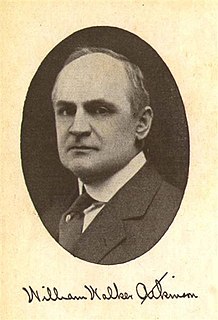A Quote by Mata Amritanandamayi
Society is made up of individuals. The thoughts and actions of each individual influence the culture of that society. Instead of waiting for others to improve, we should try to improve ourselves. Once our attitude has changed, we will be able to perceive goodness throughout world. If there is a positive change in us, it will also be reflected in others. It is only what we give that we can hope to get back.
Quote Topics
Able
Actions
Also
Attitude
Back
Change
Changed
Culture
Each
Each Individual
Get
Get Back
Give
Goodness
Hope
Improve
Individual
Individuals
Influence
Instead
Made
Once
Only
Others
Our
Ourselves
Perceive
Positive
Positive Change
Reflected
Should
Society
Thoughts
Thoughts And Actions
Throughout
Try
Up
Us
Waiting
Will
World
Related Quotes
The ultimate solution is not in the hands of the government. The solution falls on each and every individual, with guidance from family, friends and community. The #1 responsibility for each of us is to change ourselves with hope that others will follow. This is of greater importance than working on changing the government; that is secondary to promoting a virtuous society. If we can achieve this, then the government will change.
It is important to recognize the power of our emotions-and to take responsibility for them by creating a light and positive atmosphere around ourselves. This attitude of joy that we create helps alleviate states of hopelessness, loneliness, and despair. Our relationships with others thus naturally improve, and little by little the whole of society becomes more positive and balanced.
Changing the world is like trying to straighten a dog's tail. However much you may try, you won't succeed. But although the tail won't straighten, if you keep trying every day, at least you will put on some muscle. Similarly, even though it is difficult to make a change, our effort to do so in itself brings positive results. It will help us change. Without waiting for others to change,if we change ourselves first, that will make a difference. Instead of worrying about results, focus on doing our best in what we are engaged in.
To help us bring benefit to others through our words and actions, it is useful to cultivate an attitude of sympathetic joy in others’ achievements and good fortune. This attitude is a powerful antidote against envy, which is not only a source of unnecessary suffering on the individual level but also an obstacle to our ability to reach out and engage with others.
Some might say that looking inside of ourselves for spiritual truths is egocentric and selfish, and that egolessness and selflessness lie in working for others in the world. But until we find our inner truth, our work in the world will always revolve around our 'selves'. As long as we think about the world in terms of 'self' and 'others', our actions will be selfish. Our 'self' follows us wherever we go, so positive results will be limited.
In the ancient world individuals have sold themselves as slaves, in order to eat. So in society. Here is a witch-doctor who can save us from the sorcerers - a war-lord who can save us from the barbarians - a Church that can save us from Hell. Give them what they ask, give ourselves to them bound and blindfold, if only they will! Perhaps the terrible bargain will be made again. We cannot blame men for making it. We can hardly wish them not to. Yet we can hardly bear that they should.
It is possible to be honest every day. It is possible to live so that others can trust us-can trust our words, our motives, and our actions. Our examples are vital to those who sit at our feet as well as those who watch from a distance. Our own constant self-improvement will become as a polar star to those within our individual spheres of influence. They will remember longer what they saw in us than what they heard from us. Our attitude, our point of view, can make a tremendous difference.
We are sending out thoughts of greater or less intensity all the time, and we are reaping the results of such thoughts. Not only do our thought-waves influence ourselves and others, but they have a drawing power - they attract to us the thoughts of others, things, circumstances, people, 'luck', in accord with the character of the thought uppermost in our minds.
We would willingly have others perfect, and yet we amend not our own faults. We would have others severely corrected and will not be corrected ourselves. The large liberty of others displeases us, and yet we will not have our own desires denied us. We will have others kept under by strict laws, but in no sort will ourselves be restrained. And thus it appears how seldom we weigh our neighbor in the same balance with ourselves.
The quality of everything we do: our physical actions, our verbal actions, and even our mental actions, depends on our motivation. That's why it's important for us to examine our motivation in our day to day life. If we cultivate respect for others and our motivation is sincere, if we develop a genuine concern for others’ well-being, then all our actions will be positive.
Every change in conditions will make necessary some change in the use of resources, in the direction and kind of human activities, in habits and practices. And each change in the actions of those affected in the first instance will require further adjustments that will gradually extend through the whole of society. Every change thus in a sense creates a "problemfor society, even though no single individual perceives it as such; it is gradually "solvedby the establishment of a new overall adjustment.
We live in a society in which it seems that every space, every moment must be 'filled' with initiatives, activity, sound; often there is not even time to listen and dialogue... Let us not be afraid to be silent outside and inside ourselves, so that we are able not only to perceive God's voice, but also the voice of the person next to us, the voices of others.





































